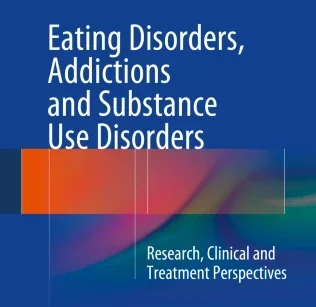Nutrition therapy for eating disorders, substance use disorders, and addictions
By David A. Wiss & Therese S. Waterhous

Clinicians working with people diagnosed with substance use disorders and eating disorders need to be educated about each disorder separately and then understand how the various disorders interact. Nutrition therapy recommendations should address the most serious medical and nutrition conditions first and then target psychological
aspects related to eating behavior in conjunction with the treatment team. Nutrition education is critical for substance use disorder patients, who clearly require specialized care, whereas education for eating disorder patients must be sensitive to their conditions and needs. Recommendations for nutrition therapy should be used as guidelines, remembering that nutritional needs are best assessed on an individual basis.
Subscribe for weekly insights and research exploring the link between nutrition & mental health.
Abstract
Medical nutrition therapy for individuals with co-occurring eating and substance use disorders includes assessment, planning, nutrition intervention, and counseling. This involves individual education, meal planning, and monitoring of compliance.
Recognized eating disorders include anorexia nervosa, bulimia nervosa, and binge eating disorder. Substances commonly abused include alcohol, stimulants, opiates, and various over-the-counter substances such as diet pills, laxatives, and diuretics. Integrated treatment can be challenging when the synergistic effects of combined entities are complex and are poorly understood.
Clinicians working with patients who have dual diagnoses should be educated about each disorder separately, as well as their interactions. Patients with substance use disorders often develop disordered and dysfunctional eating patterns during abstinence, and eating disorder patients can similarly progress into substance abuse. Traditionally, addiction has been addressed first; however, delaying eating disorder treatment can hinder recovery; therefore, it is important to alert treatment providers who treat patients with dual diagnoses how to assess and address both disorders simultaneously.
Specific macro- and micronutrient supplementation treatment is described in detail and protocols for refeeding in selected cases are provided. Nutrition therapy should address the most serious medical and nutrition conditions first and then target the psychological aspects related to eating behavior in conjunction with a multidisciplinary treatment team. Nutrition education is important for addiction recovery, particularly those who require specialized wellness care, whereas education for disordered eaters must be sensitive to their specific needs. While these guidelines can help steer nutrition interventions for co-occurring eating and substance use disorders, nutritional needs are always best assessed on an individual basis.